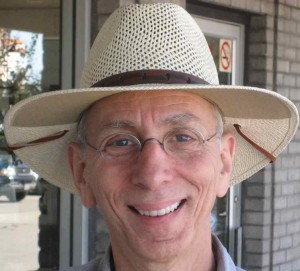My first conversation with Bill Anderson on scientific research in international development was so good we kept going to record a “part 2” on the specific application of microblogging and Twitter in science. (Check the first post for Bill’s bio.)
The Podcast
![]() Bill Anderson on Twitter for Science
Bill Anderson on Twitter for Science
Resources
Science Twitterers that Bill mentioned (first name is the Twitter name):
- AmSciForum – American Scientist Forum
- ConsBio – Conservation Biology Institute
- ethnosproject – advocacy on ICT4D
- eoflife – Encyclopedia of Life
- PLoS – Public Library of Science
- CrossRefNews – Scholarly Publishing Coop
- CDCemergency – CDC
- NAPress – US Nat’l Academies Press
- ScholarlyComm – Columbia U Ctr for Digital Research & Scholarship
- NASA_Ames
In addition, here are a few useful tips:
- Alan Cann on Twitter for Scientists (audio and slides on Slideshare)
- Kevin Marks on How Twitter Works (in Theory!)
- Howard Rheingold on Twitter Literacy
- Laura Fitton’s Tech talk at Google
The Rough Transcript
What have you noticed about scientists and science organizations using microblogging tools like Twitter?
Two things. When I was first involved with Twitter I followed my friends. Then I started to notice that some of the organizations that I work with in my NGO work with science and data were twittering. So I migrated who I followed to individuals and organization in science that give good examples about how to use something like Twitter to get information out without overwhelming people. When the Mars rover was out on Mars and operational, the people in the project set up a Twitter account and had the rover twittering. “Today I’m going to dig in the dirt. I love this job.” One of the most wonderful uses of twitter to provide information about what is happening and putting an informal face on sophisticated engineering and scientific research.
Why is it important to make science accessible and available to the public?
It makes it available to almost anyone. You can be six years old or 86. You can still wow – I’m following a robot! That’s cool.
How does that change science?
It makes it available. That’s important because without science we aren’t going to be able to get ourselves through the 21st century as a species. That’s what I believe. So second we have to make it accessible and understandable to everyone for learning or even contributing. If the general public were much more aware about how science works, what it produces, what it does, they might have better interaction with their own elected officials. That is my own personal view. I also think it is kind of fun.
Which science Twitterers are you following that you have found valuable?
We talked about open access to scientific literature in the earlier podcast. The National Academies Press is Twittering — not very frequent. They say “here is our new report about H1N1 flu” and some things that pop up from their libraries. The Columbia University Center for Digital Research in Scholarship – posts things once in a while about their research. The American Scienctist Forum – which has been a very strong advocates for open access to all research literature Twitters when new organizations implements mandates about how their research results need to be made available.
A wonderful project, the Ethnos project, is all about ICT for D – Internet Communication Technology for Development. This is an Advocacy org. They post a lot of interesting results of projects in Africa. A recent posting about broadband work in Ghana. The Public Library of Science, The Encylopedia of Life, the Conservation Bilolgy Institute in the state of Washington, the CDC has CDCEmergency which puts out reports, most recently on H1N1 virus, NASA Ames Space Center is Twittering. (We’ll share these Twitter IDs in the blog post).
Any advice for new Twitter users interested in science/science in the public interest?
I really like Twitter because it is fast and easy. You can’t ignore the fact that it has a lot of visibility. People can get connected to it very easily. For example in Facebook the American Academy for the Advancement of Science –has been on Facebook for a couple of years. They have someone in their office who named themselves as their Facebook ambassador of AAAS. I thought was fascinating. Facebook has a little bit more overhead about getting involved. Some value there, but kind of heavy weight. Whereas Twitter is lightweight.
You need two things: a website where you can publish information about what you are doing, either in in a simple blog format or whatever, then get a twitter account with a title related to your org name or mission and then send out little notes about what you are doing.
The other piece is to talk to “Follow People.” Machines aren’t Twittering, it’s people. People know people. Your experience in twitter — you spend time, you find and follow people. Howard Rheingold once mentioned that the way to manage Twitter is to look at it like a stream. A stream of information going by. Look over there, spend a little time, flip over there, and then go back to my work. I don’t try and keep up with everything that is being Tweeted. That’s a faster way to do it. Find, start following and see where that leads you. On Twitter if you pick organizations or people interested in the work you do, you will pick up information you would not have gotten from other sources.

 I need your help and recommendations!
I need your help and recommendations!